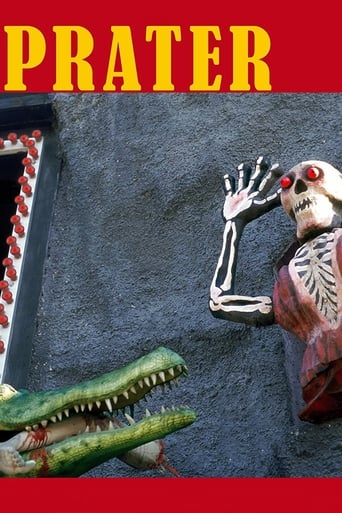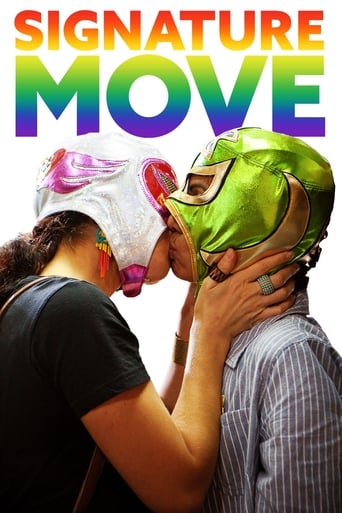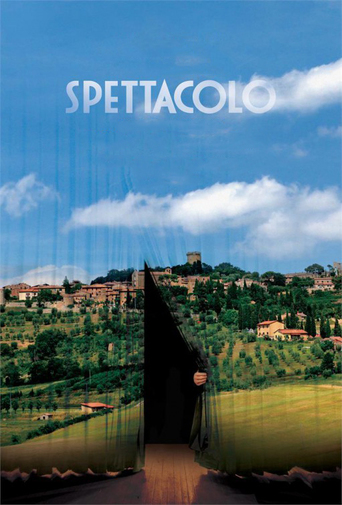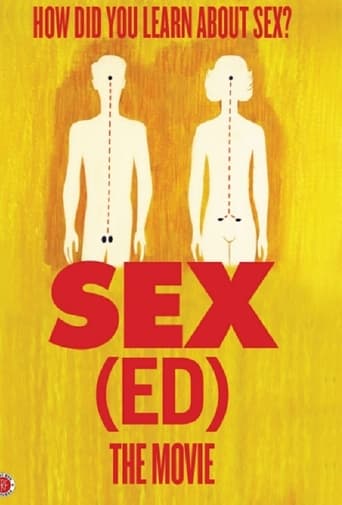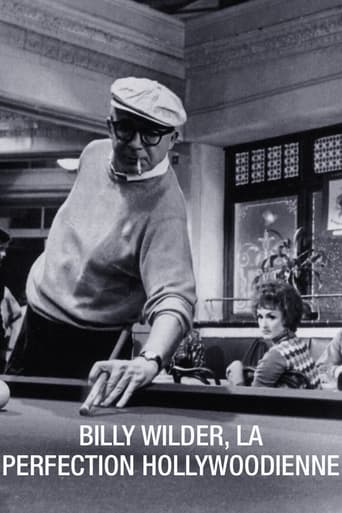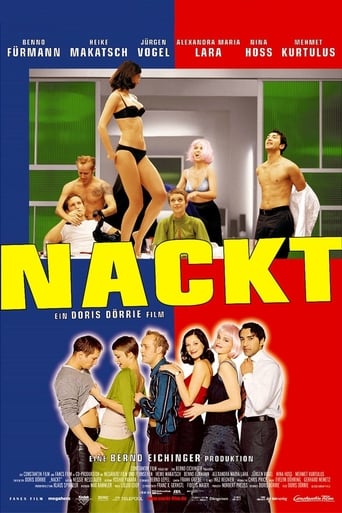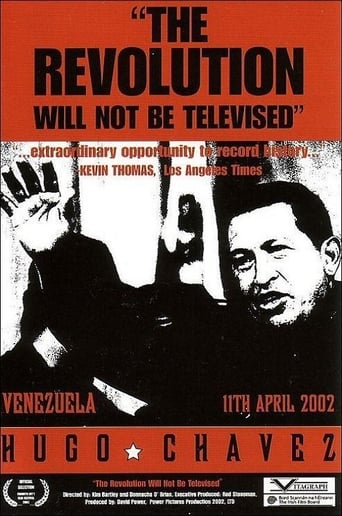

The Revolution Will Not Be Televised (2003)
Hugo Chavez was a colourful, unpredictable folk hero who was beloved by his nation’s working class. He was elected president of Venezuela in 1998, and proved to be a tough, quixotic opponent to the power structure that wanted to depose him. When he was forcibly removed from office on 11 April 2002, two independent filmmakers were inside the presidential palace.
Watch Trailer
Cast


Similar titles
Reviews
Boring
Pretty good movie overall. First half was nothing special but it got better as it went along.
This is a must-see and one of the best documentaries - and films - of this year.
It's a feast for the eyes. But what really makes this dramedy work is the acting.
An interesting documentary. Some points...1. Hugo Chavez was elected Venezuela's president in 1998, his support largely coming from the poorer regions of Venezuela.2. In 2002, a coup briefly deposed Chavez. At the time, Irish filmmakers Kim Bartley and Donnacha O'Briain were in Caracas, shooting a documentary about Chavez for British television. They documented these events and produced "The Revolution Will Not Be Televisd", a documentary which records history unfolding on-the-spot, outside and inside the presidential palace.3. Chavez aimed to free Venezuela from the free-market policies imposed on it by the West. Though Venezuela's oil was already state-owned, it was run for private benefit by executives who Chavez wished to replace.4. Despite being the world's fourth largest oil supplier, Venezuela is awash with poverty. At the time, Venezuelans believed that "kicking out multinational corporations" and "nationalizing local oil" would kick start massive social change. Citizens are still awaiting this change. Chavez has rallied much of the international Left with an ideal of a popular democratic revolution in which the country's poor have risen to redress deep social injustices. There is still a deep gap, however, between those idealised beliefs and the realities faced by the Venezuelan underclass. It is debatable whether Chavez has brought about any beneficial, concrete changes.5. The documentary begins by portraying Chavez's first years as president before the coup. It focuses on his popularity with the poor, and his various policies which proved popular with working class locals (educational plans, distribution of the oil revenue, grass-root democracy etc).6. Chavez was a huge proponent of education, and printed thousands of copies of the Venezuelan constitution, encouraging children and adults to study and understand it.7. When Chavez came to power, he immediately pledged to redistribute oil profits. This, understandably, made the oil companies nervous.8. A media-war broke out. The six private TV stations promptly began opposing the state-run TV station. They questioned Chavez's motives, sanity and sexual orientation.9. Without media support, the coup would not have been successful. The film makes it clear that coups rely heavily on the media to disseminate information and that news can be easily fabricated.10. Under the guise of "re-establishing democracy", the opposition silenced the state-run TV station, dissolved the National Electoral Board, Supreme Court, National Assembly and took control of the military.11. Moneyed interests, backed by the military elite and encouraged/sponsored/planned by the US and CIA, organised a citizens' march on the presidential palace to effect the coup. Snipers shot at Chávez supporters, but the private media stations edited footage so it appeared that return fire was aimed at the opposition march that in fact had been safely diverted.12. Police went on a shooting rampage against Chavez supporters, further bloodying the streets.13. Chavez, held captive, refused to resign. Of course the media/government then lied, saying he had resigned, but Chavez's cabinet members communicated the truth to the international community, which eventually got the message back to Venezuela by cable TV.14. The people rose up, pressuring the return of the president they had elected, whom only a referendum could constitutionally replace.8.9/10 - Worth one viewing. See Adam Curtis' docs.
Yes, the cameras were in the right place at the right time. It's so interesting to see how a world leader (like Chavez) who supports the poor people in his country, can be held in such low esteem in the US. His worst "sin", in my opinion, is caring about those who are at the bottom of the barrel. What can be so bad about that? I have always been fascinated by the US government+media reaction to Fidel Castro. At first, Castro was a good guy (around 1959) when he supplanted Batista. Soon, however, Castro started turning the corporations in Cuba toward the needs of the poor instead of the fat cats. We're a decent country, but why does our media and government have such a problem with sharing with the poor? If these guys are "dictators," then we could use more "dictatorships" especially where the poorest of the poor live in the world.
There are a lot of comments regarding the controversy surrounding whether this movie got the facts straight or not. Frankly, I didn't care one way or another about the events in the movie, because the filmmakers did not MAKE me care. When making a documentary, the number one priority is to have a cohesive plot line that draws the audience into the story. With this, "The Revolution Will Not Be Televised" fails in every respect.Every scene should have a purpose, to develop the characters in the documentary, or to further the story with background information. Here, all we see is a confused mish-mash of poorly chosen footage. We have political figures, who we don't know and don't care about because the film never develops them, rambling on and on about logistical stuff with no context. Think C-SPAN mixed with your neighbor's home videos. Ohhhh, very exciting! We have random people off the street screaming stuff into the camera, again not adding anything to the story. Throughout the entire movie I kept wondering, "Why are you showing me this scene?", and the only possible explanation was that the filmmakers were incompetent.Even the supposed main draw of the movie, the "behind-the-scenes" footage of the coup and aftermath, is mind-numbingly boring. Nothing exciting happens on camera. All you see is meetings, more meetings, and even more meetings. Oh, and throw in a bunch of shots of shrill protesters. Just because you were there and got it on film doesn't automatically make something interesting. In fact, the only footage worth seeing in the entire movie was the brief "sniper" scene during the riot. 10 exciting minutes out of 75, not a very good ratio.
I found that this movie was a little too simplistic. The message is basic. Chavez is loved by the people because he takes from the rich and gives to the poor. The rich in this case are Venezuelan oil tycoons, depicted as Washington's cronies, helping the US to suck Venezuela dry. When Chavez threatens this setup, the CIA helps instigate a coup. Chavez is shown as a populist leader and shining example of democracy, touting the constitution and its ideals. He's the little guy, David with his single government channel, up against Goliath, the rich businessmen and their many private channels spewing anti-Chavez propaganda and bankrolled by the US. But the real world is never that simple. Chavez can't be such a shining example of goodness, can he?After watching the movie, I felt very angry at the fatcats (American and Venezuelan) who unjustly and unconstitutionally try to take power from the democratically elected president of the people. But after looking up Chavez on wikipedia, and reading some of the IMDb comments from Venezuelans, I wasn't so sure about him. Is he another Castro? It seems like he's got absolute control over the National Assemby, and he's using it to make constitutional changes giving him more and more power. Sure, he's gotten a lot done for poor people, but at what price? Apparently, unemployment and poverty levels in Venezuela have not improved much during Chavez's term, while state oil revenues have dipped. None of this is addressed in the movie.The movie focuses very narrowly on the events that took place during the short-lived coup attempt against Chavez in April, 2002. For people like me, who don't know much about Venezuela, this movie did little to explain the country's recent history with any depth. All the viewer is told is that Chavez became famous after leading a failed coup attempt in 1992, then was elected democratically in 1998. We're shown scenes of crowds of poor Venezuelans all supporting Chavez, and rich Venezuelans loathing him. The only explanation given for this polar division along class lines is Chavez's plan to more evenly distribute the revenue from Venezuela's oil industry. But this seems to fall short of fully explaining the grievances against Chavez. Such vehement opposition to Chavez as shown in the movie can't come solely from rich oil tycoons angry because he's taking their oil revenues, can it? But that's the only reason given.Then comes the coup. A crowd of anti-Chavez protesters parade to the oil ministry, then decide to move the demonstration to the presidential palace, where a pro-Chavez crowd has gathered. I would have liked to know exactly how many demonstrators were in each camp, but the movie doesn't say. Another murky subject never satisfactorily cleared up is the sniper shooting during the protest. The movie never clearly identifies who is killed by the snipers. Were the snipers shooting pro-Chavez or anti-Chavez demonstrators? The movie lets you assume that the victims were all pro-Chavez demonstrators, but never tells you outright who the victims were.The killings are blamed on Chavez and the military withdraws its support of the Chavez government. Then Chavez is taken into custody by the coup generals and the coup government takes over the presidential palace. According to the movie, the coup government from the beginning starts to repress the people. We are shown riot police, purportedly sent out to repress pro-Chavez supporters. Nevertheless, news of Chavez's arrest and his refusal to resign spreads, and in a couple of days, seemingly millions of Chavez supporters surround the palace calling for his return. The palace guards, still loyal to Chavez, stage a mini-coup of the coup government, returning control of the palace to Chavez's people. Finally, the military gives in and returns Chavez, unharmed, and he resumes control of Venezuela's government. That's it, that's the whole movie.If after watching this movie, you are filled with righteous anger and conviction that Hugo Chavez is on the side of good and that fatcats are on the side of evil, I urge you to do a little more research and try to get both sides of the story before rating this movie a ten while being angry at those who rated it a zero. This movie does little more than show a very narrow slice of Venezuela's history, specifically the events that took place in the presidential palace in Caracas over three or four days in April, 2002.



